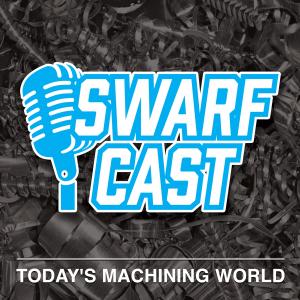Swarfcast

Ep. 94 – The Machining World of South Africa with Peter Frow
On today’s show we’re discussing the machining business in South Africa. Our guest is Peter Frow. Peter has been immersed in the machining business and has also been a participant in the social change of South Africa over the last 50 years. While so many of his countrymen emigrated, Peter stayed and has recently started a business building a new machine tool in South Africa called FAS Machine Tools. Scroll down to listen to the podcast. Or listen on your phone on your favorite app or Apple Podcasts and Google Podcasts. Main Points Peter talks about his businesses, Renfield Machine Tools, which he started in 1991, and his new company, FAS Machine Tools. Renfield Machine Tools reconditions used cam screw machines and turnkeys them, while FAS Machine Tools builds new machines. (3:40) Peter says FAS Machine Tools builds a machine in South Africa that has the fast cycle times of a cam screw machine and the user-friendliness of a CNC lathe. He says his machine costs half the money one would likely pay for a comparable machine. Peter describes his machine as similar to a Swiss style machine but with a fixed headstock. It has an 8-station turret that moves on 2 axes, a dedicated turning slide that moves on 2 axes, a dedicated forming slide and a dedicated parting slide. The machine’s design allows for tools to work simultaneously on a workpiece, which gets cycle times down. (5:25) Peter discusses what it’s like being 75 years old and starting a new company. He doesn’t worry about his age. (8:00) Peter talks about his background in the machining industry. His father was an engineer at a power utility company in South Africa. Peter received a degree in mechanical engineering and for seven years worked for the same power utility company where his father had worked. In his late 20s he changed careers and went back to his hometown of Durbin. Once there, he joined his father’s screw machine shop. It was supposed to be a temporary gig, but he ended up staying and building up the company over the next nine years, from 1973 to 1982. (9:15) Peter describes the history of Apartheid in South Africa. He says country consists of essentially four racial groups: black, white, Indian, and those of mixed racial heritage, which South Africans call “colored.” White South Africans are descended either from Dutch colonists (Afrikaners) or the English. In 1948, the Nationalist Party, supported by the Afrikaners, came to power and instituted the Apartheid, separating the country’s racial groups into different geographical areas. The whites, who represented only 20% of the population, controlled the majority of the land. Despite economic sanctions, the unjust situation lasted 40 years. In the late 1980s, F.W. de Klerk was elected Prime Minister. He eventually released political prisoners such as Nelson Mandela, allowed political parties that had been prohibited, and embarked on the process of negotiating a new constitution, which came to fruition with the 1994 Election. (13:50) Peter talks about his work as church leader and how he worked to bring reconciliation in South Africa in both a religious and political...






 Visit Podcast Website
Visit Podcast Website RSS Podcast Feed
RSS Podcast Feed Subscribe
Subscribe
 Add to MyCast
Add to MyCast